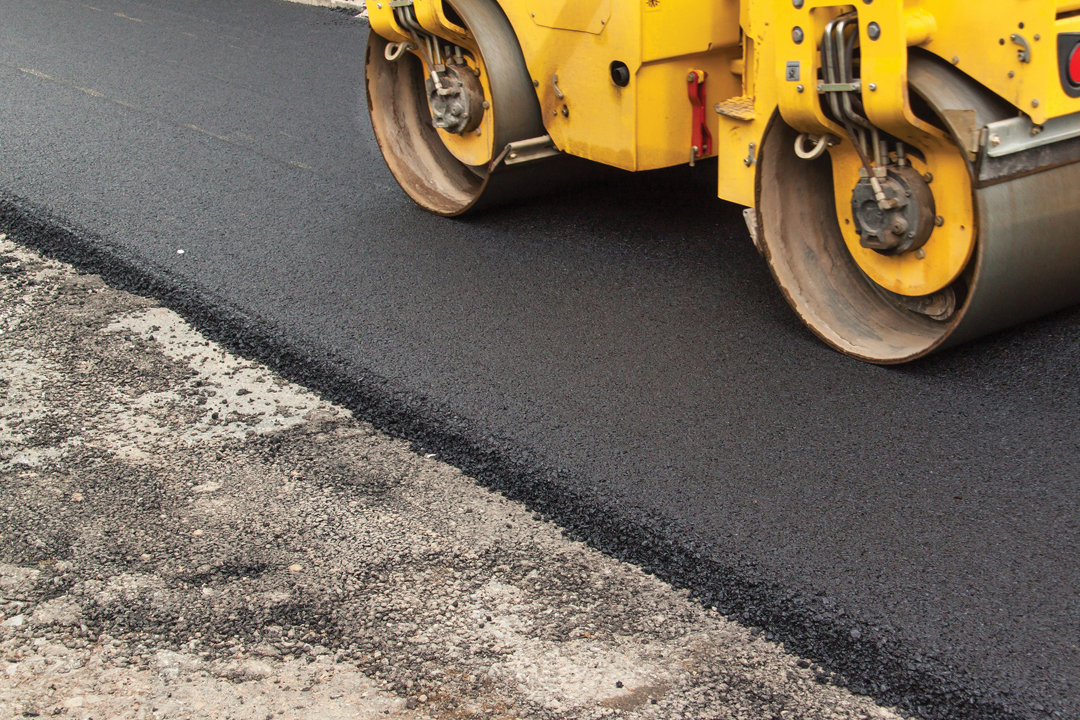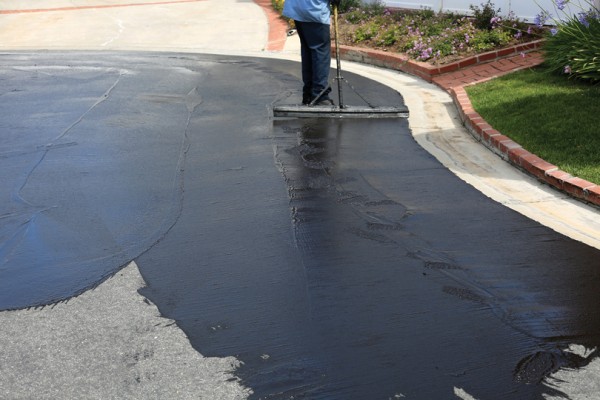Burke Asphalt

Expertise: Asphalt Care and Maintenance
Quality workmanship is something that has long run in Patrick Burke's family. It all started back in 1960 when his grandfather started Burke Asphalt and, over the years, began sharing his years of expertise with his son, who would in turn eventually pass those tools of the trade down to his grandson. As a third-generation contractor, Burke is keeping that legacy alive as he now heads up the family business.
During his years on the job, Burke has run into a lot of customers with similar questions about asphalt care and maintenance, so we wanted to ask him about some of the things that homeowners should know. Here he shares his answers to some of the more common things he's asked and offers advice for anyone considering sealing or resurfacing their driveway.
Should a driveway be sealed within the first year or two?
The answer to that is a little complicated, depending on what sealer is used. If you prefer water-based sealer, you have to wait at least a year in order to seal a new asphalt driveway. For an oil-based sealer, you can seal it as early as right away to make sure the driveway is saturated with the natural oils in asphalt. Most people think you have to wait at least a year for either sealer, but it is only true of water-based sealers.
Are there different types of asphalt?
Yes, generally the stone size is different in the main types of asphalt. Driveway top, which is what we put on residential driveways, is primarily 9.5mm stone. For some commercial parking lots we sometimes use 19mm, which shows a little less wear for heavier equipment or trucks. If you're going to be paving in two layers, we use 25mm for the under layer and 9.5mm for the top.
How often should a driveway be sealed?
Driveways tend to need to be sealed when the pavement is devoid of any tar, which leaves it gray. This is usually around two years, depending on weathering and how much traffic it gets.
What is better, a water-based or oil-based sealer?
In terms of better for asphalt, oil based is much better for the longevity of the asphalt. But it is much more expensive as it penetrates completely into the existing asphalt, whereas water based does not penetrate and mainly sits on top like a blanket coating. For this reason, most people think water based is a thicker product viscosity wise. They are actually about the same. Water based is definitely better for older and more worn asphalt as it will hide some blemishes and cracks that oil based will not. It is also less expensive.
What are common signs your driveway needs resurfacing?
You will start to see alligator areas, which are several cracks all together that lead to slight sinking in some areas on your driveway. You will also see some of your cracks start to become full separations, which means that the asphalt has completely separated all the way to the stone underneath.
What are the benefits of resurfacing?
Resurfacing is the practice of overlaying a new driveway over a settled old driveway using what is called modified driveway mix. That is essentially 9.5mm top asphalt that has been modified to get into the cracks and crevices of the old driveway so you don't have to tear up what you have. This service saves the homeowner quite a bit of money and gives the same result as tearing up and starting new. There are exceptions, such as pitch concerns and water drainage concerns, which may make certain projects unqualified for a true resurfacing.
What are the other main services you provide?
As well as asphalt paving, we also provide tar and chip services and both oil-based and water-based sealcoating for residential and commercial properties. We also do parking lot striping.
Burke Asphalt
(484) 228-1776
BurkeAsphalt.com
Published (and copyrighted) in House & Home, Volume 23, Issue 11 (September 2023).
For more info on House & Home magazine, click here.
To subscribe to House & Home magazine, click here.
To advertise in House & Home magazine, call 610-272-3120.
